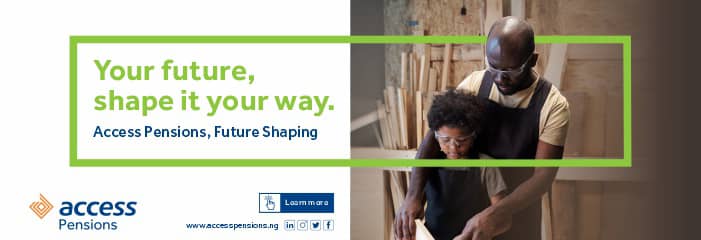
The much-anticipated construction of the Fourth Mainland Bridge in Lagos is set to commence in the first quarter of 2024, as announced by Governor Babajide Sanwo-Olu during the Lagos West Senatorial District Town Hall Meeting.
Here are 21 crucial details that shed light on this transformative infrastructure project:
1. Commencement And Construction: The Governor has confirmed that construction is scheduled to begin by the end of March or April 2024, adopting a phased approach to minimize disruptions caused by building demolitions.
2. Length And Connectivity: The Fourth Mainland Bridge is an ambitious 38km-long project by the Lagos State Government, linking Lagos Island through Langbasa and Baiyeku in Ikorodu across the Lagos Lagoon to Itamaga in Ikorodu.
3. Carriageway Design: This 2×4 lane carriageway boasts a cross-sectional road configuration with provisions for a Bus Rapid Transit (BRT) Lane and considerations for future road contraction.
4. Architectural Innovation: The Fourth Mainland Bridge project introduces a paradigm shift in architectural design and engineering. Envisioned as more than just a transportation structure, its innovative architecture combines functionality with aesthetic appeal, creating an iconic landmark that reflects the forward-looking vision of Lagos.
5. Projected Cost And Funding: Estimated at around $2.5 billion, the project is set to be executed through a public-private partnership initiative with tolling expected for the initial two years.
6. Preferred Bidder: In December 2022, the CCECC-CRCCIG CONSORTIUM was announced as the preferred bidder, entrusted with executing the project in alignment with the state government’s plans.
7. Construction Timeline: Initially slated for 2017 with a projected completion in 2019, the project faced delays. The new timeline, following its commencement, aims for completion in 2027.
8. Integration With Existing Infrastructure: Eight roads, including major arteries like the Lagos-Ibadan Expressway and Igbogbo-Lagos, will be aligned with the Fourth Mainland Bridge, enhancing connectivity across the city.
9. Traffic Relief: Positioned as a complement to the existing Eko, Carter, and Third Mainland Bridges, the Fourth Mainland Bridge is anticipated to significantly reduce traffic congestion.
10. Size And Scale: Upon completion, it is poised to become the second-longest bridge in Africa, featuring three toll plazas, nine interchanges, a 4.5-kilometer Lagoon Bridge, and an environmentally conscious design.
11. Compensation For Displaced Residents: Governor Sanwo-Olu assures fair compensation for tenants and landlords affected by building demolitions during the construction process.
12. Visionary Environmental Features: The project envisions an eco-friendly environment, ensuring that as Lagos expands, it does so with a commitment to sustainability.
13. Lekki-Epe Corridor Span: Spanning about 37 kilometers, the bridge will initiate from Abraham Adesanya in Ajah, traverse the Eti-Osa-Lekki-Epe corridor, and extend northwest towards the Lagos-Ibadan Expressway.
14. Environmental Considerations: With a forward-looking approach, the Fourth Mainland Bridge project places a strong emphasis on environmental sustainability. Designed to integrate seamlessly with the natural surroundings, the bridge aims to minimize its ecological footprint, ensuring that as Lagos expands, it does so in harmony with the delicate balance of its environment.
15. Projected Economic Impact: The construction and completion of the Fourth Mainland Bridge are anticipated to have a substantial economic impact. The increased connectivity and improved transportation infrastructure are expected to stimulate economic activities, creating new opportunities for businesses and fostering overall economic growth.
16. Technological Advancements: Leveraging modern engineering and construction techniques, the Fourth Mainland Bridge represents a leap forward in technological advancements. The project incorporates state-of-the-art features, setting a benchmark for future infrastructure projects within and beyond the region.
17. Collaborative Public-Private Partnership (PPP): The Fourth Mainland Bridge project exemplifies a successful collaboration between the public and private sectors. The involvement of the CCECC-CRCCIG CONSORTIUM as the preferred bidder showcases the effectiveness of public-private partnerships in driving large-scale infrastructure developments.
18. Job Creation: The construction phase of the Fourth Mainland Bridge is poised to generate a substantial number of employment opportunities. From skilled labor to support staff, the project will contribute to job creation, providing livelihoods for many within the local community.
19. Enhanced Regional Connectivity: Beyond its local impact, the Fourth Mainland Bridge is positioned to enhance regional connectivity. Strengthening links between different parts of Lagos, the bridge will contribute to a more integrated and accessible metropolitan area.
20. Cultural Integration: The lower level of the bridge, known as ‘Lagos Life,’ is designed to facilitate social, commercial, and cultural interactions. This innovative approach promotes cultural integration, fostering a sense of community and shared experiences among the diverse population of Lagos.
21. Tourism Boost: The completion of the Fourth Mainland Bridge is expected to boost tourism in Lagos. The iconic structure, coupled with the improved accessibility it provides, is likely to attract visitors interested in experiencing the vibrancy and diversity of one of Africa’s most dynamic cities.
As the Fourth Mainland Bridge takes shape, these additional points further emphasize the multifaceted impact of this transformative project on Lagos and its residents.
For real estate investors, the evolving landscape presents a wealth of opportunities, from economic growth and technological advancements to cultural integration and increased tourism appeal.
Investing in areas surrounding the Fourth Mainland Bridge is not just a financial decision; it’s a strategic move towards being part of the city’s future prosperity.
DENNIS ISONG is a Top Realtor in Lagos. He Helps Nigerians in Diaspora to Own Property In Lagos Nigeria STRESS-FREE. For Questions WhatsApp/Call 2348164741041


More Stories
The Significance of Property Tours Before Buying Real Estate -By Dennis Isong
N72m Fraud: Court Issues Bench Warrant Against GMC logistics boss Sonny Allison
Veteran Banker, Jim Ovia, Appointed Chairman Of Nigerian Education Loan Fund By Pres. Tinubu